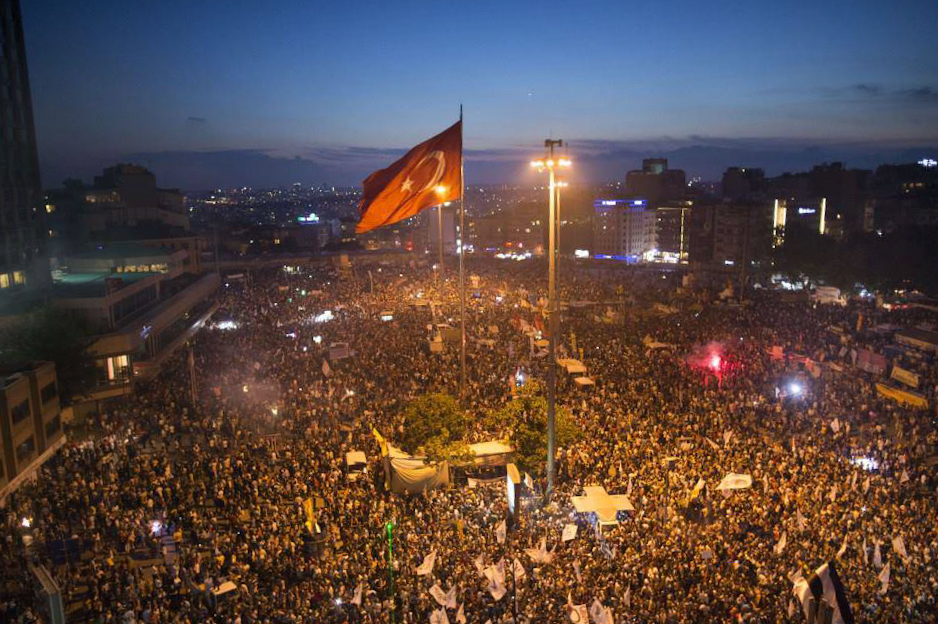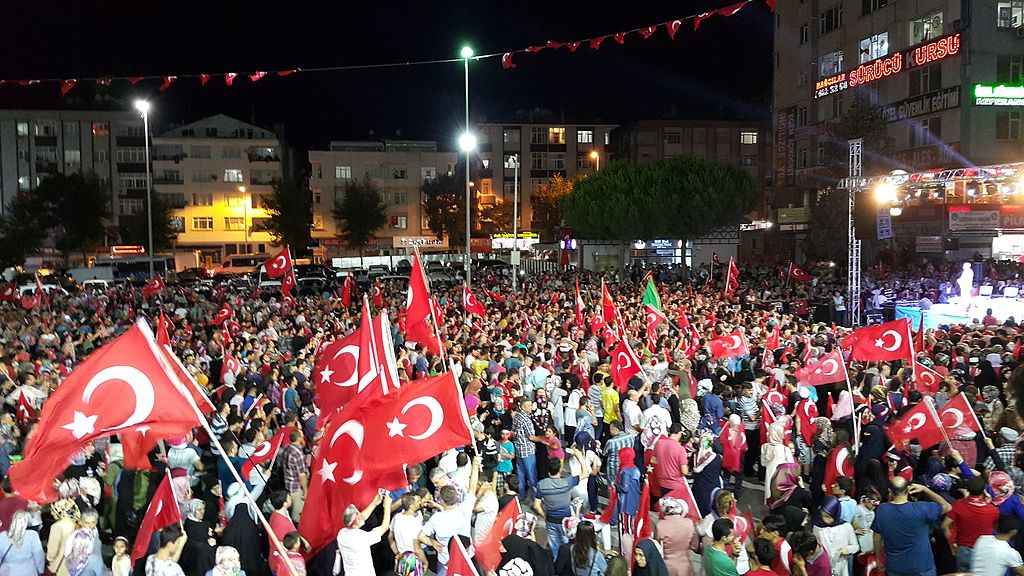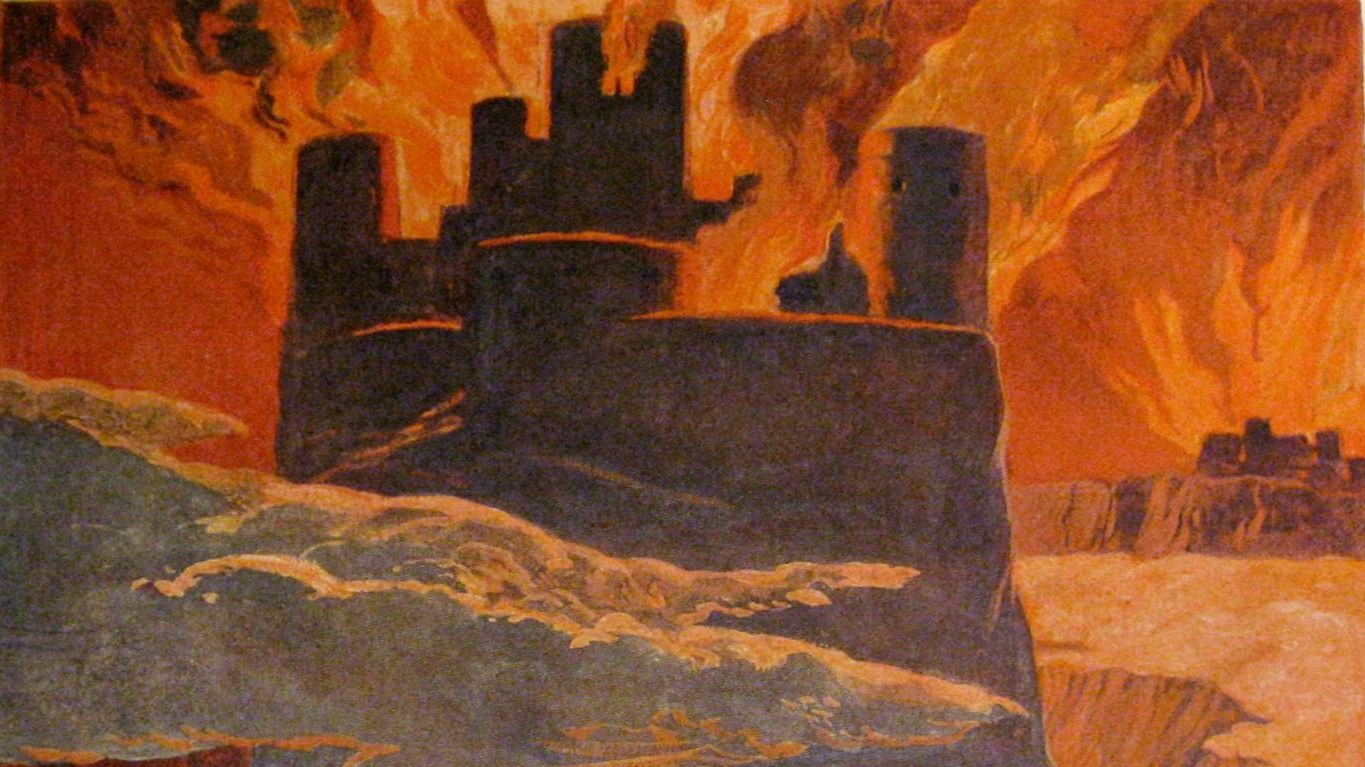Why did the project “Turkish stream” disturb so much both the United States and a significant part of the European elites? Why did not only the Sothern Europe with a strong demand for gas but also such countries as Germany, Austria, Denmark worry? After all, the latter ones have their own North European gas, and functioning, as well as fully reliable, operating pipelines for gas supplies from Russia, namely ‘Yamal-Europe’ and ‘Nord Stream’.
Turkish turn?
As we have said in the previous article, the point is in the growing mutual suspicion and, sometimes, a conflict between the elites of Turkey and their American and European ‘friends.’ There are political, economic, and geostrategic grounds for these processes.
Turkey, which was persistently “knocking” at the door of the European Union for decades, was very sensitive to the regular refusals accompanied by the allegations of ‘human rights violations’, etc. And no less painfully it felt the economic and political discrimination against the Turkish diaspora in Europe, especially in Germany.
Turkey more and more sharply reacted to the dictates of NATO in regards of its military policy. Especially in regards of the usage of Turkish military bases by NATO.
Turkey regarded the plan ‘Greater Middle East’ announced in 2005 by the then United States Secretary of State Condoleezza Rice with great anxiety. Particularly, it concerns the so-called ‘map of the ‘New Middle East’ by the retired United States Army lieutenant colonel Ralph Peters published in 2006 in the leading magazine of Pentagon «Armed Forces Journal». On the map, the state borders in the Middle East region were fundamentally redrawn with vast territories of Turkey shown as a part of a newly established state ‘Free Kurdistan.’
Accordingly, Turkey was particularly attentive to the series of ‘revolutions of Arab Spring’ launched by the USA at the turn of 2011. It quickly realized that a long-term chaotic conflict in the spirit of implementation of Peters’ “map of the ‘New Middle East’ is being created in the whole zone of its vital interests. And it was clear that the actor of this catastrophic process is the conspiring elites of the USA and major European countries and that in this process a role of ‘the suffering object’ is assigned to Turkey.
The so-called ‘Gezi revolution’ (also known as Gezi Park protests – Editor) had exceptional influence on the political turn of the Turkish state leadership.

In June 2013 massive street unrests surrounded the urban development plans of government for Istanbul’s central Gezi Park, where the mausoleum of Kemal Atatürk is situated, occurred in Ankara and all of Turkey. The opposition’s behavior, the slogans, and the nature of the organization of the protests exactly repeated the scenario of provocation of the recent ‘revolutions of Arab Spring.’ Exactly at that time, the then Prime Minister Recep Tayyip Erdoğan (now he is the President of Turkey – Editor) publicly hinted that the Turkish secret services had reliable information that this ‘revolution’ was provoked by the United States.
In the fall and winter of 2013–2014, Edward Snowden’s unveiling of the scale and nature of American electronic espionage against the Turkish elites and corporations elicited a sharp indignation in Turkey.
In the spring of 2014, the Turkish elite realized that the ‘Gezi revolution’ could be only the first attempt and that the bell of the coup in Ukraine actively supported by the United States tolls for Turkey.

It was, presumably, at that moment and under those circumstances, when Russia, for the first time, made Ankara (at first not publicly) an attractive offer, the ‘Turkish pipeline’. In other words, it was an opportunity for Turkey to ‘peacefully’ become the same large-scale gas transit country to Europe as in a precarious option of gas pipelines from Egypt and Qatar through Syria.
Since the summer of 2014, Erdogan expressed open dissatisfaction with American statements that Ankara should coordinate with the USA its policy of fighting ISIL (Organization banned in Russia). Turkey was also dissatisfied with the persistent American demands to grant an unlimited access for the US Air Force to the Turkish Incirlik Air Base for the operations against ISIL (Organization banned in Russia).
Turkey justly regarded these US demands as exceptional cynicism of the Americans, since it was clear that a significant part of ISIL (Organization banned in Russia) were Islamist radicals, who were in the US pocket, and that the American policy in the region was focused on the highest possible escalation of the conflicts.
Exactly at that time, it became clear that the United States greatly encouraged the processes of ‘political autonomy’ of Iraqi and then Syrian Kurds. Turkey could not help but recollect the Peters’ “map of the ‘New Middle East’ ” including ‘Free Kurdistan’…
In July 2014, Erdogan publicly stated that he stopped communicating with Barack Obama. At the end of November 2014, at one of the meetings the then Turkish Prime Minister said, “Why does someone come to the region, in spite of the distance of 12 thousand kilometers? I want you to know that we are against the insolence, recklessness, and endless demands.“
And at the same time, it was yet another ‘political and economic slap in the face’ for Ankara, this time from the EU, when during the discussion of so-called ‘Southern Gas Corridor’ to Europe bypassing Russia the European Commission agreed that Baku would be the main operator of the network of Trans-Anatolian Natural Gas Pipeline (TANAP, from Azerbaijan through Turkey) and Trans Adriatic Pipeline (TAP, from Turkey to Greece and further to Western Europe). Turkey was allowed to join this alliance only as a gas transit country.
Exactly at this moment, the contacts on different aspects sharply intensified between Moscow and Ankara.
Turkey is already the second, after Germany, consumer of Russian gas; it imports over 27 billion cubic meters of gas per annum and is interested in increasing gas import in the future.
Before the events of 2014, Moscow and Ankara had already launched a project to build the Akkuyu Nuclear Power Plant comprising four 1200 MW reactor units by Russia.
Turkey is one of the largest trading partners of Russia (the mutual trade was almost $33 billion in 2013). For Turkey, Russia is the second largest trading partner after Germany (this article was originally published on March 18, 2015, before Turkey downed Russian jet fighting ISIL [Organization banned in Russia – Editor] in Syria, after which the relations between the countries worsened and Russia implemented sanctions against Turkey – Editor).
Finally, Turkey has had an opportunity for the expansion to the Russian market of technological equipment (including quite modern engineering products of Turkey) and food market, which are being vacated due to the USA and EU sanctions.
It seems that exactly a strategic nature of the Russian proposals defined the political position of Ankara during the development of the ‘sanctions war’.
Despite pressure from the United States and other NATO ‘colleagues’, Turkey refused to join the US and the EU sanctions against Russia.
Despite pressure from the United States, Turkey refused to strengthen the attack on Russia in regards of ‘the fate of Tatars oppressed in Russia-occupied Crimea’ question raised by the Americans (that is, refused to do it so far – Editor).
However, such a ‘turn’ of Turkey is obviously connected not only with the ‘economic carrots’ promised by Russia. The point, first of all, is that Turkey gave up (note, as well as Russia) its hopes of becoming an EU-member country and made the strengthening of its own ‘regional statehood’ a political priority. Turkey reconsiders its attitude to the whole system of the Middle East conflicts and its own role in them.
In that light, the victory of any of the conflicting parties is unacceptable for Turkey.
Ankara does not want ‘Shi’ite coalition’ consisting of Iran, Iraq, Syria, and Lebanon to win because of the power ambitions of Iran, which are not less strong than in Turkey. Turkish elites realize that such a victory would escalate to the extreme the centuries-old Turkish-Persian rivalry, and this can happen under circumstances when Iran already has a powerful army and considerable missile potential if not a nuclear bomb. The ‘Shi’ite coalition’ victory can question even the Azerbaijani gas transit across Turkey to Europe, which seems now to be certain under conditions of the beginning of TANAP and TAP pipelines construction. For this reason, Ankara is seeking to overthrow the ‘Shi’ite’ Al-Assad clan in Syria.
Ankara does not want ‘Sunni coalition’ to win also because of the possible drastic “caliphatist” radicalization of the southern neighbors of Turkey, most probably. Ankara is aware that the geopolitical costs of such a ‘Sunni victory’ will be much higher than the benefits of the intended gas transit through ‘Qatari’ and ‘Arab’ pipelines across Turkish territory to Europe.
Therefore, Ankara seems now to be interested in the ‘balance of powers’ in the Middle East region. And it is trying to support comparatively ‘moderate’ (and the not-so moderate one, as it turned out in November 2015 – Editor) opposition to Al-Assad in Syria. These efforts are aimed at weakening of the ‘Shi’ite coalition’, and, at the same time, at maintaining good relations with the Sunni countries. Turkey realizes that the prolongation of the war between these coalitions weakens both sides and, at the same time, allows Ankara, on the main issues, not to be involved in the hottest conflict incidents.
And, these aspirations of Turkey largely coincide with those of Russia.
Strategic basis for alliance
Russia, like Turkey, categorically does not accept the redrawing of the state borders of the ‘Greater Middle East’ according to the “Colonel Peters’ map”. Moscow is aware that this process clearly will not be limited to the region marked on this map and will be the cause of the geopolitical and then military chaos in all of Eurasia.
Russia, like Turkey, is interested in the ‘balance of powers’ in the region. Such a ‘balance of powers’ can assure that the Islamic radical militants will bog down in the confrontation in the ‘Greater Middle East’, which is highly desirable for Moscow.
Russia, similar to Turkey, is not interested in the victory of the ‘Shi’ite coalition’, which is able to quickly construct the ‘Shi’ite gas pipeline’ and start the transit of Iranian gas to the Mediterranean coast and further to Europe. However, Russia is also not interested in the victory of the ‘Sunni coalition’, which will build ‘Qatari’ pipeline, connect it with the ‘Arabic’ pipeline to provide large gas supply to Europe, competing with Russian gas supplies.
Both Turkey and Russia need a powerful ally in the region to achieve these “almost identical” objectives. After an attempt at ‘Gezi revolution’, not only the power clan, but also the majority of the military elite of Turkey realize that the US is not such an ally for Ankara anymore. And therefore, the forecasts of some experts that the Americans will help the opposition to overthrow Erdogan and regain control over Turkey are under a serious question. Although the pressure on Ankara by NATO will be certainly intensified.
Thus, Moscow and Ankara agree on their main tactical interests in the region.
And of course, these interests are sharply at odds with those of the USA, NATO, and the EU.
If Russia and Turkey consolidate their alliance, NATO will have Turkish ‘weak link’, which hardly can be used ‘at full capacity’ against Russia in the case of escalation of the military-political situation, on its south-eastern flank. Moreover, in this case, it will be unlikely to get Turkey to agree by the consensus rule, which is a basic principle of the North Atlantic Treaty Organization, to support the American attempts to implement ‘military’ solutions against Russia. Therefore, the pressure on Ankara by NATO will be certainly intensified.
In the case of complete realization of ‘Turkish stream’, the EU will certainly not only bear considerable costs for the urgent completion of the infrastructure to distribute the Russian gas in south-eastern Europe, but also will have to deal with the problem of supplying gas to the poor, chaotic, and willful Ukraine.
Apparently, this circumstance forced the European Commission, headed by the new Commissioner for Energy Maroš Šefčovič, to immediately initiate the EU ‘Energy Union’. The Union, leaders of which make decisions regarding the European energy policy, which are mandatory for all member countries.
To be continued.
Source (for copy): https://eu.eot.su/?p=7734
This is the translation of the fifth article (first published in “Essence of Time” newspaper issue 119 on March 18, 2015) by Yury Byaly of a series on the new round of global economic warfare. The ultimate goal of this war, of which gas wars is a part, is the weakening and dissolution of Russia. But disruption of Russian supply of gas will lead to lack of gas and rise of prices and some European economies might just not handle this. Since all of the global economy is intertwined, those who started this war want to make not just Russia, but many other countries become weaker in the end.




